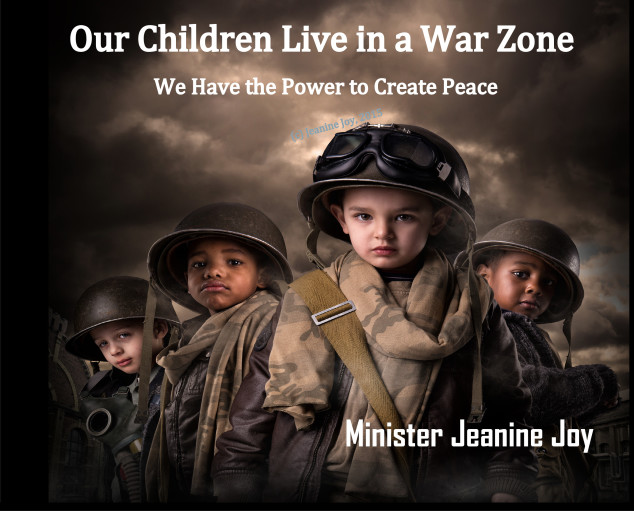What Does The World You Want Look Like? Feel Like?
What Does The World You Want Look Like? Feel Like?
Have you ever asked yourself what you want the future to be like and given it extensive thought? Have you looked into the scientific research to see what we already know how to accomplish? Have you shifted outside your comfort zone in an effort to move the world more toward your preferred future?
Five years ago I left a nice cushy executive position in Corporate America because I learned that there were possible futures that I liked far more than current reality, futures science had already demonstrated were possible. It had become my passion and still burns brightly within me.
But I can’t create this future, the world you want, alone. It will take a dedicated group of individuals who are willing to be considered weird or out of step with the rest of humanity (until they catch up). But that’s okay, because as soon as you learn the skills that lead to this preferred future blending in will no longer be something you strive for.
The future we can have is so wonderful for everyone. The way I see my Preferred Future is described below.
Preferred Future
Everyone on the planet understands how to use The Smart Way metacognitive processes in conjunction with emotional guidance to improve their own life.
What the Preferred Future looks like:
Being happy is normal. Unhappy people stand out and attract others who help support their efforts to become happier using The Smart Way
It is rare for anyone under 25 to be incarcerated because:
- They aren’t committing crimesCrimes is a way to feel more empowered and they already feel empowered
- They aren’t using drugs to feel better—because they already feel good
- Recidivism is also lower because incarcerated individuals are also learning how to use The Smart Way
- Our biggest prison problem is what to do with all the newly empty prisons
Heart disease, diabetes, depression, anxiety, PTSD, and psychosis are rare
- Almost everyone is an expert at managing stress to low levels
Low stress = High Happiness
- The path from stress to unhealthy biochemical and low immune function are fully understood
- The negative impact of stress on digestion is understood
- The benefit of increased pro-health behaviors that comes with lower stress is received fully
- Individual resilience is much higher than today due to metacognitive stress reduction skills
Racism and Discrimination is something old people remember from their youth.
- People understand they can’t think badly of others and feel good
- People are committed to feeling good because when they feel good they are good
Employee Engagement has been high for years
- People know how to align their work to their purpose
- People understand that trusting increases trustworthiness
- People are reaching for bold, inspiring goals because their encouraging guidance is understood
Relationships of all type are better, divorces are not common
- Without the financial burdens of the problems solved, everyone can enjoy a better quality of life without working as hard or long
- People know how to repeatedly fall in love with their spouse
- Lower stress = better moods, better moods = appreciate one another more
What is The Smart Way(tm) metacognitive processes in conjunction with emotional guidance?
The Smart Way is a collection of advanced and transformative evidence-based, experience-informed strategies that help individuals actively use self-regulatory metacognitive processes known to promote good mental health and lower stress in combination with emotional guidance.
What is emotional guidance?
In 2007, researchers recognized that the purpose of emotions scientists had accepted as true for eighty years was inaccurate and that the purpose of emotions is to provide guidance leading us toward self-actualization and away from danger. Because science misunderstood the function of emotions for so long, almost everyone alive suffers from responding to emotions in ways that inhibit their ability to thrive. Learning how to accurately interpret and respond to emotional signals has immediate and profound effects that improve one’s quality of life.
What is metacognition?
In the simplest terms, metacognition is thinking about thinking. The Smart Way is thinking about thinking by someone who understands how the mind works, prioritizes information, how the mind becomes and sustains biases, and techniques that quickly lead to more productive perspectives about whatever the person is observing.
Everyone’s brain is programmed. Psychologists believe most programming is complete by age 6. Most people’s brains are programmed by default—their environment determines much of the programming regardless of the helpfulness or harmfulness of the programming. The Smart Way empowers you with tools that you can use to reprogram your mind so that it is more helpful and less harmful to your success in anything you choose to do.
Are any fundamental principles included in The Smart Way or is it just science?
There are a number of principles I believe become self-evident when one begins using The Smart Way including:
- Your mental programming, more than any other factor (gender, race, education, religion, age, etc.), is what limits you or helps you thrive
- Your mental programming can be changed at any time, even in old age
- At their core, everyone is good. No exceptions.
- Behavior and emotional state are intricately linked. Undesired behaviors are primarily the result of disempowered emotional states
- People who know how to achieve and sustain good-feeling emotional states behave better
- Stress (which flows from mindset) is the root cause of over 90% of the world’s troubles
- Stress, according to researchers, is responsible for 65 – 95% of all illnesses and diseases because psychological stress affects the immune, endocrine (digestive), cognitive, and central nervous system in adverse ways.
- Psychological stress is the result of mindset and habits of thought far more than it is the result of circumstances
There are some fundamentals informed by science, including:
- Psychological (mental) stress changes a person’s biochemistry—increasing stress levels in the body, depressing immune system, cognitive, digestive and central nervous system function
You will note that The Smart Way goes beyond tolerance to Diversity Appreciation, which is actually easier to achieve because the approach flows with human nature, not against it.
This is not an idealist’s dream. Evidence-based research supports the fact that this potential is our for the taking–if we are brave enough, bold enough, and determined enough to make it happen.
What would you give to ensure your children and grandchildren could live in a world like this? In the world you want?
What would you be willing to learn? Who would you be willing to tell?
[contact-form-7 id=”2377″ title=”Basic (new) contact form”]




